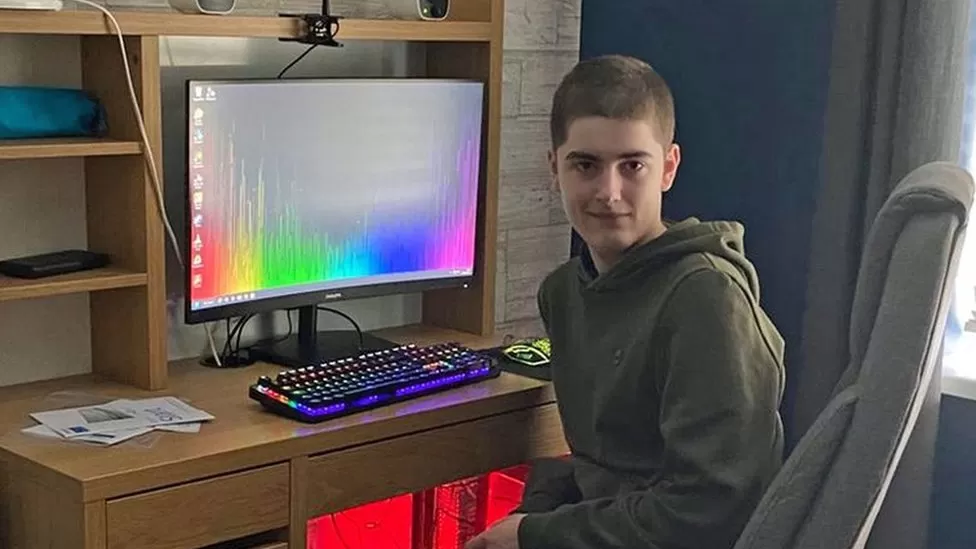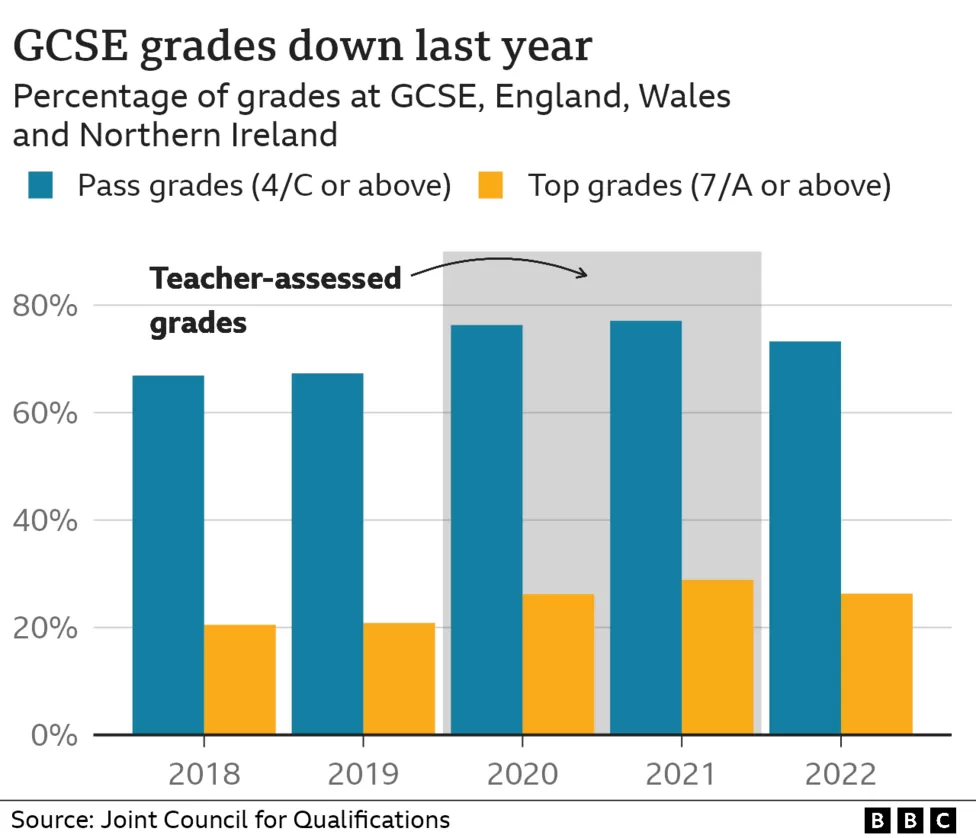GCSE results in England are set to drop for a second year running, bringing grades back in line with 2019 levels. It follows a spike in higher grades in 2020 and 2021 when exams were canceled because of COVID-19, and results were based on teachers’ assessments. In Wales and Northern Ireland, results are set to be higher than they were in 2019 but lower than in 2022. Students will also receive Level 2 BTec, Cambridge National, and other vocational results on Thursday morning. The pass rate for exams in Scotland fell this month – but was still higher than before the pandemic.

![]()
‘My school put on a GCSE just for me’
Euan is waiting for GCSE results in science, maths, computer science, English language, and English literature – as well as a BTec in creative media. His autism meant he found mainstream schools quite difficult, but he has flourished since moving to Abbey School in Rotherham. They saw Euan’s potential and ran a GCSE in computer science especially for him. “The teachers I’ve had this year are the best ones I’ve ever had,” he says. Results day will be stressful for Euan, as the exams were a mixed bag. “The ones I feel quite good about are the science and computer science ones. The ones I don’t feel so good about are the English ones,” he says. Euan hopes to work in network and cyber-security one day. Once he has his results, he plans to head to college to study a T-Level in digital support networking. Exams were cancelled in 2020 and 2021 because of Covid. Pupils’ grades were based on teachers’ predictions instead, leading to a spike in top results.
England’s exams watchdog, Ofqual, set out a two-year plan to bring A-level and GCSE results back down to pre-pandemic levels. Last year was the first time students sat exams since the start of the pandemic. Ofqual called it a “transition year”, with grades set to reflect a midway point between 2019 and 2021. About 73.2% of GCSEs in England, Wales and Northern Ireland were marked at grades 4/C and above. Now, in the second stage of the plan, grades are due to be much more similar to those in 2019, when 67.3% of GCSEs were marked as passes. Schools Minister Nick Gibb said bringing them back down would ensure results carried “weight and credibility” with employers, universities and colleges, so they know what the different grades mean. In England, where the GCSE grading system in England changed from letters to numbers in 2018, students need to pass GCSE maths and English with grade 4 or above to qualify for further study.

The expected fall in grades will lead to more compulsory resits of these subjects – which can be carried out alongside those further studies – compared with the last two years. Most of this year’s GCSE students were in Year 8 when the pandemic hit. They also faced disruption from teacher strikes this year, although unions said they tried to minimise the impact on exam year groups. Ofqual says there is “protection built into the grading process” so that students should achieve the grades they would have done if the pandemic had not happened – even if they did not perform as well in their exams. Some Covid measures also remained in place for this year’s exams. GCSE papers in the same subject were spaced apart more than they were before the pandemic, allowing for rest and revision.
Students had formulae and equation sheets in some subjects, and were not tested on unfamiliar vocabulary in modern foreign language exams. But, unlike in the rest of the UK, GCSE students in England were not given advance information about the topics on which they would be tested. In Wales and Northern Ireland, grades are still expected to be higher than they were in 2019. Students in England have to do some form of study or training until they are 18 – such as A-levels, T-levels, BTecs or apprenticeships.

Last week, the overall percentage of top A-level grades fell close to pre-pandemic levels. A total of 3,448 people received T-level results – although 5,210 students started them in 2021. Education Secretary Gillian Keegan told the BBC that some had switched to other Level 3 courses, apprenticeships, or gone straight into work. “That is something that we are working to make sure that doesn’t happen because we do want to make sure that they finish the T-levels,” she said. “The T-levels are fantastic but I’ll be honest, it’s a very new qualification so we still need to grow it.” The Department for Education said it was working to “improve retention”.
![]()





